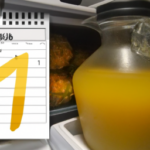Juice Tips and Tricks
How Long Can Pineapple Juice Last In The Fridge
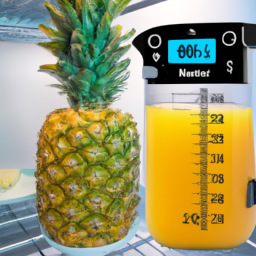
As someone who enjoys an occasional refreshing glass of pineapple juice, I have been wondering about its storage duration. Should it be consumed immediately, or is it safe to keep it in the refrigerator for a while? After doing some research, I am excited to share what I have learned about how long pineapple juice can last in the fridge and the factors that can affect its freshness.
Pineapple juice is a popular beverage that is enjoyed for its sweet and tangy flavor, as well as its numerous health benefits. However, like all perishable products, pineapple juice can spoil over time. Understanding its shelf life is important to avoid consuming expired juice, which can lead to foodborne illness.
In this article, I will provide an overview of the shelf life of pineapple juice, signs of spoiled juice, tips for extending its shelf life, and common myths associated with this tropical drink.
Key Takeaways
- The shelf life of pineapple juice depends on the type and storage.
- Fresh pineapple juice can last 3-5 days in the fridge, while store-bought juice can last up to 2 weeks if stored correctly.
- Once opened, pineapple juice lasts 5-7 days in the fridge, and signs of spoilage include sour smell/taste, cloudiness, and mold growth.
- To extend the shelf life of pineapple juice, it should be kept refrigerated at all times, transferred to an airtight container, and frozen if needed.
Understanding the Shelf Life of Pineapple Juice
You might be wondering how long your pineapple juice will last in the fridge, but don’t worry, it’s important to understand the shelf life to ensure you’re getting the most out of your juice.
Pineapple juice is a perishable product that can spoil over time. The shelf life of pineapple juice varies depending on the type of juice and how it’s stored.
To maximize the shelf life of your pineapple juice, it’s important to store it properly. Pineapple juice should be kept in the refrigerator at all times, even before it’s opened.
Once opened, pineapple juice can last for 5-7 days in the fridge. To check if your pineapple juice is still fresh, look for signs of spoilage such as a sour or off smell, or a change in color or texture.
By following these storage tips and freshness indicators, you can ensure that your pineapple juice stays fresh and delicious for as long as possible.
How Long Can Pineapple Juice Last in the Fridge?
I’ve often wondered about the shelf life of pineapple juice, especially when it comes to freshly squeezed versus store-bought.
To be more precise, how long can I keep fresh pineapple juice in the fridge before it goes bad?
And what about store-bought pineapple juice, does it have a longer shelf life?
These are important questions to answer if you want to avoid wasting juice or risking your health.
Shelf Life of Fresh Pineapple Juice
Fresh pineapple juice has a shelf life of about 3-5 days in the refrigerator. To preserve its freshness, it’s important to store it properly. Once you’ve opened a container of fresh pineapple juice, make sure to keep it tightly sealed in the fridge.
If you’ve made the juice yourself, use an airtight container or cover it with plastic wrap before refrigerating it. This will prevent air and bacteria from getting in and spoiling the juice.
It’s important to note that the shelf life of fresh pineapple juice may vary depending on its quality and the storage conditions. If the juice is exposed to heat or light, it may spoil faster. Also, if it has a sour smell or taste, it’s best to discard it.
Now, let’s move on to the shelf life of store-bought pineapple juice.
Shelf Life of Store-Bought Pineapple Juice
When buying pineapple juice from the store, consumers can tell if it’s still safe to drink by checking the expiry date of the juice before purchasing it. The shelf life of store-bought pineapple juice depends on various factors such as the processing method, packaging, and storage. Generally, pineapple juice can last for up to two weeks in the refrigerator if stored correctly. However, once opened, its shelf life decreases significantly, and it should be consumed within a few days.
To ensure that store-bought pineapple juice lasts as long as possible, it’s essential to store it correctly. Here are two sub-lists to evoke emotion in the audience:
-
Dos:
-
Always store pineapple juice in a cool and dry place.
-
Keep the juice away from direct sunlight and heat sources.
-
Use a clean glass or container to pour the juice.
-
Seal the container tightly after each use.
-
Store the juice in the refrigerator immediately after opening.
-
Don’ts:
-
Do not store pineapple juice outside the refrigerator for extended periods.
-
Do not leave the container open for too long.
-
Do not use a dirty glass or container to pour the juice.
Proper pineapple juice storage is essential to increase its lifespan in the refrigerator. However, if the juice has been stored incorrectly or for too long, it may spoil, and consumers should be aware of the signs of spoiled pineapple juice.
Signs of Spoiled Pineapple Juice
If pineapple juice has a sour smell or taste, it may be a sign that it has spoiled. Identifying spoilage in pineapple juice is important to avoid consuming it and risking food poisoning.
In addition to a sour smell or taste, spoiled pineapple juice may also appear cloudy or have mold growth. It is important to check the expiration date of the juice and consume it before it goes bad to avoid any health risks.
Proper storage is also key to extending the shelf life of pineapple juice. Keep the juice refrigerated at all times and make sure the container is tightly sealed. Avoid leaving the juice out at room temperature for too long and never drink it if it’s been left out for more than two hours.
By following these guidelines, you can ensure that your pineapple juice stays fresh and safe to consume for as long as possible.
Tips for Extending the Shelf Life of Pineapple Juice
Now that we know the signs of spoiled pineapple juice, let’s talk about ways to extend its shelf life. Proper storage is key to keeping pineapple juice fresh.
First, make sure to keep the juice refrigerated at all times, and avoid leaving it at room temperature for too long. Pineapple juice can quickly spoil in warm conditions, so it’s important to keep it chilled.
Another way to preserve pineapple juice is to transfer it to an airtight container. This will prevent air and bacteria from getting into the juice, which can cause it to spoil faster. Make sure to label the container with the date you opened the juice, as this will help you keep track of how long it has been in the fridge.
With these simple storage tips, you can extend the shelf life of pineapple juice and enjoy it for longer periods of time.
As we’ve discussed, proper storage is crucial to keeping pineapple juice fresh. But if you find that you have too much juice and fear it may go bad before you can drink it all, freezing is another option. In the next section, we’ll explore the process of freezing pineapple juice and how to thaw it properly.
Freezing Pineapple Juice
Want to enjoy pineapple juice all year round? Learn how to freeze it properly! Freezing pineapple juice is a great way to extend its shelf life and enjoy the delicious tropical taste whenever you want. Here are three benefits of freezing pineapple juice and some tips on how to defrost it properly.
-
Saves money: By freezing pineapple juice, you can buy in bulk and save money in the long run. You won’t have to worry about the juice going bad before you have a chance to drink it all.
-
Convenient: Freezing pineapple juice allows you to have a ready-to-drink beverage at any time. Whether you want a refreshing drink after a workout or a tasty addition to your smoothie, frozen pineapple juice is always available.
-
Retains nutrients: Freezing pineapple juice does not affect its nutritional value. You can still enjoy the same vitamins and minerals as fresh juice.
To defrost frozen pineapple juice, place it in the refrigerator overnight. Alternatively, you can place the frozen juice in a bowl of room temperature water and stir occasionally until it is fully defrosted.
Now that you know how to freeze and defrost your pineapple juice, let’s move on to using leftover pineapple juice in creative ways.
Using Leftover Pineapple Juice
I often find myself with leftover pineapple juice after making a recipe or mixing a cocktail. Luckily, there are many ways to use up this delicious juice.
Pineapple juice can be added to marinades for a tropical twist, used in baking to add moisture and flavor, or even used as a base for a refreshing smoothie.
Additionally, pineapple juice can be a great addition to cocktails, such as a classic piña colada or a refreshing pineapple margarita.
Pineapple Juice in Recipes
You can add a refreshing twist to your recipes by using pineapple juice, which can add a tropical flavor to your dishes. Here are three ways you can use pineapple juice in recipes:
-
Pineapple juice substitutions: You can replace other liquids in recipes, such as water or milk, with pineapple juice to add a unique flavor. For example, you can use pineapple juice instead of water when making rice or quinoa to give it a sweet and tangy taste.
-
Pineapple juice marinades: You can use pineapple juice as a base for marinades, which can tenderize meats and add a tropical flavor to them. Simply mix pineapple juice with some soy sauce, garlic, and ginger, and marinate your meat for a few hours before cooking it.
-
Pineapple juice in smoothies: Adding pineapple juice to your smoothies can give them a sweet and refreshing taste. You can combine pineapple juice with other tropical fruits, such as mango or papaya, to make a delicious and healthy smoothie.
Now, let’s move on to how you can use pineapple juice in cocktails.
Pineapple Juice in Cocktails
Using pineapple juice in cocktails adds a tropical twist and can transport you to a sunny beach. Pineapple juice cocktails are perfect for any occasion, whether you’re hosting a party or simply want to relax and unwind at home.
Pineapple juice can be mixed with a variety of other ingredients to create a unique and refreshing drink that’ll satisfy your thirst for something sweet and tangy. When it comes to choosing the best mixers for pineapple juice, there are many options to consider.
Some of the most popular mixers include coconut rum, vodka, and tequila. These spirits pair well with pineapple juice and can enhance the tropical flavor of the drink. Other mixers that work well with pineapple juice include orange juice, lime juice, and grenadine. These ingredients can add a citrusy or sweet flavor to the cocktail, depending on your preference.
Incorporating pineapple juice into your cocktail recipes is a fun way to create a refreshing and delicious drink. But, did you know that pineapple juice also has several health benefits?…
Health Benefits of Pineapple Juice
Although pineapple juice may not last very long in the fridge, it packs a punch of health benefits. Pineapple juice benefits can be attributed to its high nutritional value, including vitamins C, B1, and B6, as well as minerals like potassium and magnesium. Here are four ways pineapple juice can improve your health:
-
Digestive Aid: Pineapple juice contains bromelain, an enzyme that helps break down proteins in the digestive system. This can lead to a reduction in bloating and discomfort after meals.
-
Anti-inflammatory: Bromelain also has anti-inflammatory properties, which can help reduce inflammation and swelling in the body. This makes pineapple juice a great addition to your diet if you suffer from conditions such as arthritis or asthma.
-
Immune Booster: Pineapple juice is high in vitamin C, known to boost the immune system. Drinking pineapple juice regularly can help prevent illnesses and keep your body strong.
-
Skin Health: Pineapple juice contains antioxidants that can help fight free radicals and promote healthy skin. It also contains vitamin C, essential for collagen production, a protein that keeps skin firm and elastic.
As we move on to the next section about pineapple juice vs. other juices, it’s important to note that while pineapple juice may have unique health benefits, it’s important to incorporate a variety of juices into your diet to ensure you’re getting a diverse range of nutrients.
Pineapple Juice vs. Other Juices
Now that we know the numerous health benefits of pineapple juice, let’s compare it to other juices. Pineapple juice is an excellent source of vitamin C, manganese, and bromelain, which is an enzyme that aids in digestion. Unlike other juices that are high in sugar and calories, pineapple juice is a low-calorie, low-sugar option that can be a great addition to a balanced diet.
When it comes to juices for detox, pineapple juice is a popular choice due to its high antioxidant content, which can help flush out toxins from the body. It is also a natural diuretic, which can help reduce water retention and bloating. However, it is important to note that while pineapple juice has many benefits, it shouldn’t be relied upon solely for detoxification. A balanced diet and regular exercise are still the best ways to support overall health.
Moving on to the common myths about pineapple juice, many people believe that it can induce labor in pregnant women. However, there’s no scientific evidence to support this claim. In fact, consuming large quantities of pineapple juice during pregnancy may actually be harmful due to its high levels of bromelain, which can cause contractions. Let’s explore other myths and facts about pineapple juice in the next section.
Common Myths About Pineapple Juice
One misconception about pineapple juice is that it can induce labor in pregnant women. However, this claim has been debunked by medical professionals and researchers. While pineapple contains an enzyme called bromelain, which has been linked to softening the cervix, the amount present in pineapple juice is not enough to have any significant effect on labor induction.
Another common myth about pineapple juice is that it can cure illnesses such as the common cold and even cancer. While pineapple does contain vitamin C and other antioxidants that can support the immune system, there is no scientific evidence to suggest that it can cure or prevent any diseases.
It is important to seek medical advice and treatment from licensed healthcare professionals to address any health concerns.
Frequently Asked Questions
Can pineapple juice be stored in the freezer for longer periods?
Yes, pineapple juice can be stored in the freezer for longer periods. Freezing pineapple juice can extend its shelf life for up to 8 months. It’s important to use an airtight container to prevent freezer burn.
Is it safe to consume pineapple juice after its expiration date?
I investigated using expired juices and found that it can be risky due to bacterial growth. Pineapple juice safety depends on proper storage and expiration dates. Do not consume expired pineapple juice as it may cause foodborne illnesses.
What are the best ways to tell if pineapple juice has gone bad?
To determine if pineapple juice has gone bad, conduct a smell test and visual inspection. Look for changes in color, texture, and odor. Shelf life expectancy varies based on storage conditions and expiration date.
Can pineapple juice be mixed with other beverages or ingredients?
I enjoy experimenting with Pineapple juice mixology to create refreshing Pineapple juice cocktails. It can be mixed with other beverages or ingredients like coconut water, rum, and mint to add a tropical twist to your drink.
Are there any side effects associated with drinking too much pineapple juice?
Drinking too much pineapple juice can result in a pineapple juice overdose, causing potential dangers such as diarrhea and stomach pain. Mixing pineapple juice with alcohol can also have negative effects on the body.
Conclusion
So, there you have it. Pineapple juice is a delicious and healthy beverage that can last up to 7-10 days in the refrigerator, as long as it’s stored properly.
It’s important to look for signs of spoilage, such as an off smell or taste, and to follow some simple tips to extend its shelf life. Just like a fine wine, pineapple juice can benefit from being aged.
The longer it sits in the fridge, the more concentrated and flavorful it becomes. So, if you have a bottle of pineapple juice that’s been sitting in your fridge for a few days, don’t worry! It’s only getting better with time, like a fine cheese or a vintage car.
So pour yourself a glass and enjoy the sweet, tropical taste of pineapple juice, knowing that it’s not only delicious but also good for your health.
Cindy thoroughly researches juicing trends, techniques, and recipes to provide readers with practical advice and inspiration. Her writing style is accessible, engaging, and designed to make complex concepts easy to understand. Cindy’s dedication to promoting the advantages of juicing shines through her work, empowering readers to make positive changes in their lives through the simple act of juicing.
Juice Tips and Tricks
How to Make Aloe Vera Juice Taste Better

Tired of the strong flavor of aloe vera juice? No problem, we’ve got the answer for you.
In this article, we’ll share some tips and tricks to make your aloe vera juice taste better. We have tried and tested various methods to enhance the flavor without compromising the health benefits.
From choosing the right juice to adding natural sweeteners and infusing with fruits and herbs, we’ve got all the information you need to transform your aloe vera juice into a delightful and refreshing beverage.
Let’s dive in!
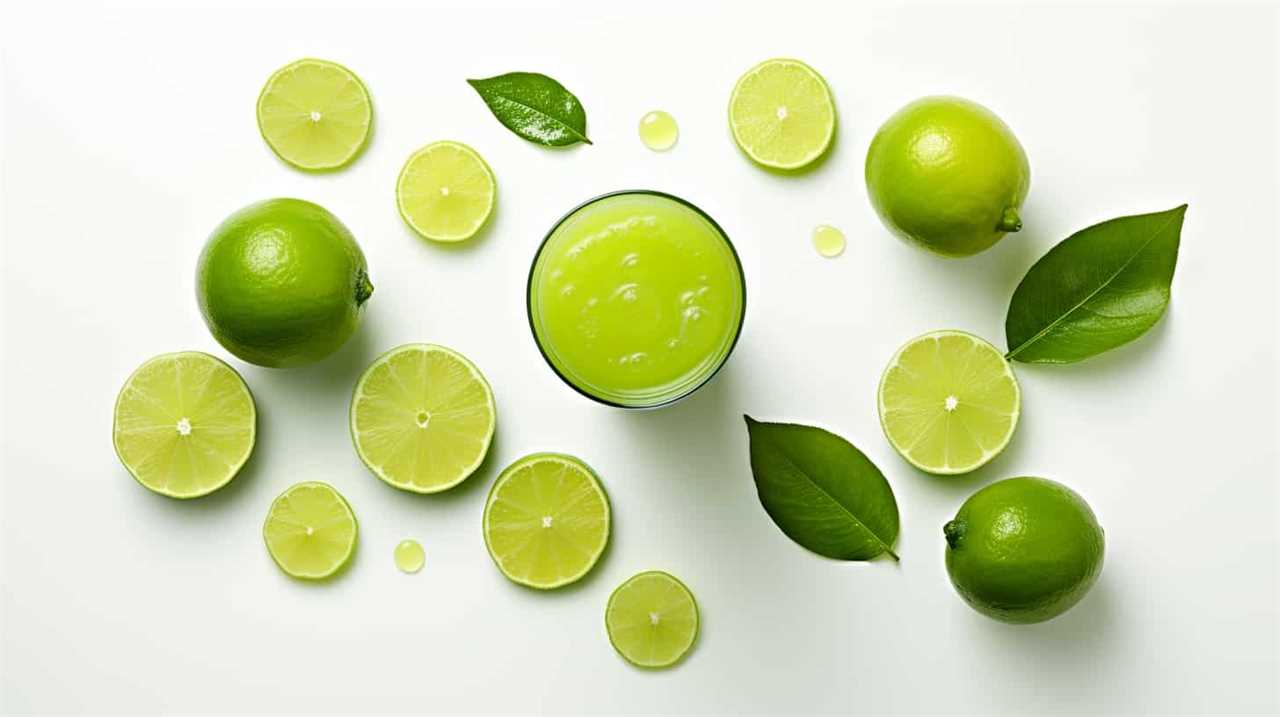
Key Takeaways
- Choose a reputable brand of aloe vera juice that prioritizes quality and uses organic, pure aloe vera.
- Avoid brands that contain added sugars or artificial ingredients.
- Use natural sweeteners like honey, agave syrup, or stevia to enhance the taste of aloe vera juice.
- Experiment with adding fruits, herbs, and other juices to create unique flavor combinations and enhance the health benefits of aloe vera juice.
Choosing the Right Aloe Vera Juice
We can enhance our experience with aloe vera juice by selecting the right brand and type for our preferences. When it comes to finding a reputable brand, it’s important to do some research and read reviews from other consumers. Look for brands that prioritize quality and use organic, pure aloe vera without any added sugars or artificial ingredients. Understanding the health benefits of aloe vera juice is also crucial in making the right choice. Aloe vera is known for its soothing properties, aiding digestion, promoting skin health, and boosting the immune system. By choosing a high-quality brand, we can ensure that we’re getting the maximum benefits from our aloe vera juice.
Now that we know how to choose the right brand, let’s move on to the next step of adding natural sweeteners.
Adding Natural Sweeteners
To enhance the flavor of our aloe vera juice, we can add natural sweeteners such as honey or agave syrup. Using alternative sweeteners not only adds sweetness but also brings unique flavors to the juice. Here are some options to consider:
- Stevia: A natural sweetener derived from the Stevia plant, it’s a zero-calorie alternative to sugar.
- Maple Syrup: This natural sweetener adds a rich and earthy flavor to the aloe vera juice.
- Dates: Pureed dates can be used to sweeten the juice while also providing essential nutrients like fiber.
In addition to using alternative sweeteners, we can enhance the flavor of aloe vera juice by adding spices and extracts. Cinnamon, ginger, or vanilla extract can add warmth and depth to the taste. By experimenting with different combinations of these natural sweeteners, spices, and extracts, we can create a flavor profile that suits our preferences.
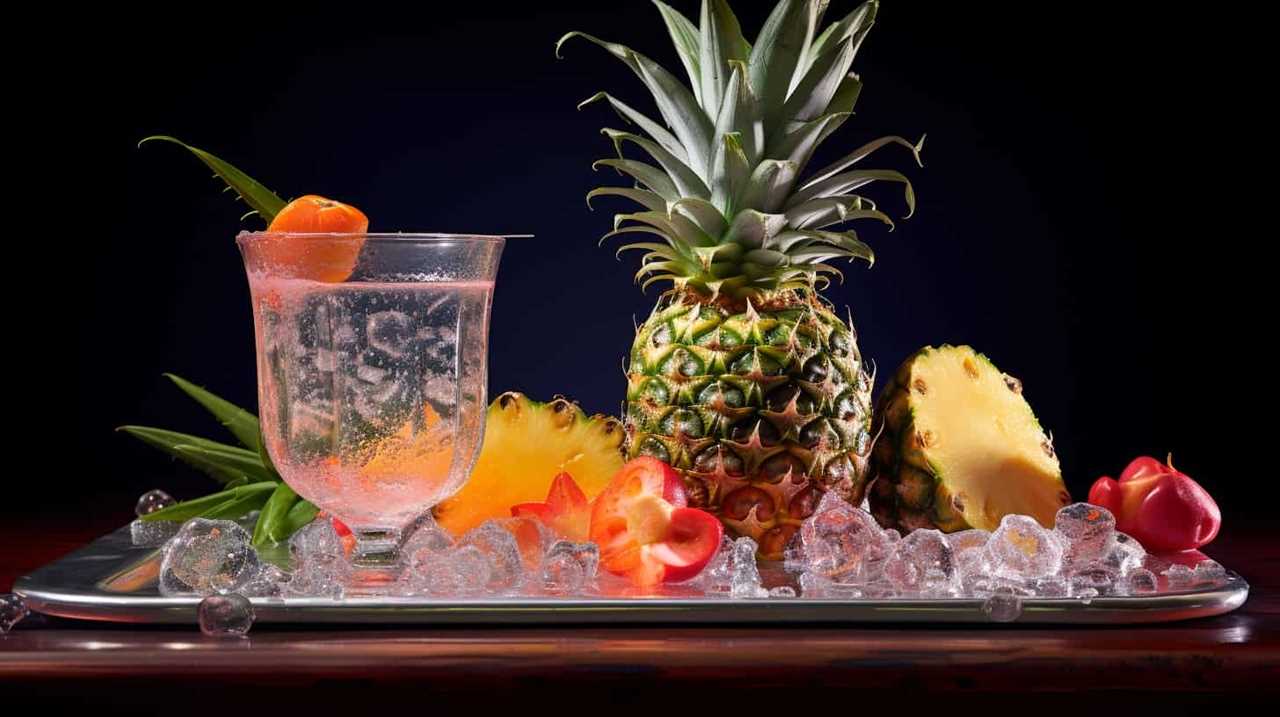
Now, let’s move on to the next section and learn how to infuse aloe vera juice with fruits and herbs to further enhance its taste.
Infusing With Fruits and Herbs
As we explore ways to make our aloe vera juice taste better, one option to consider is infusing it with fruits and herbs. Creating unique aloe vera blends by adding fruits and herbs not only enhances the flavor but also adds a touch of freshness and complexity to the juice.
Fruits like strawberries, pineapple, or citrus can add a burst of sweetness, while herbs like mint, basil, or ginger can provide a subtle yet refreshing twist. Exploring the benefits of herbal infusions can also be beneficial for our health. For example, adding a few sprigs of lavender can promote relaxation and reduce stress. Additionally, infusing aloe vera juice with rosemary can aid digestion and boost the immune system.
Blending With Other Juices
Let’s try mixing aloe vera juice with different fruit juices to create delicious and refreshing blends. Blending aloe vera juice with other fruits not only enhances its taste but also adds nutritional benefits to your drink. Here are three fruit juices that you can mix with aloe vera juice:

- Orange juice: Combining aloe vera juice with orange juice not only adds a tangy flavor but also boosts your intake of vitamin C, which is essential for a strong immune system.
- Pineapple juice: Mixing aloe vera juice with pineapple juice creates a tropical blend that isn’t only refreshing but also helps in digestion. Pineapple contains bromelain, an enzyme that aids in breaking down proteins and promoting better digestion.
- Watermelon juice: Blending aloe vera juice with watermelon juice creates a hydrating and refreshing combination. Watermelon is rich in water content and contains electrolytes that can help replenish your body’s fluids.
Experimenting With Flavor Combinations
While we can try various flavor combinations with aloe vera juice, it’s important to find the right balance to enhance its taste. Experimenting with different flavors can’t only make the juice more enjoyable but also enhance its health benefits.
Aloe vera juice is known for its numerous health benefits, such as boosting digestion, promoting hydration, and supporting the immune system. By adding complementary flavors, we can create a refreshing summer drink that not only tastes great but also provides a nutritional boost.
Some popular flavor combinations include mixing aloe vera juice with citrus fruits like lemon or orange, adding a splash of coconut water for a tropical twist, or combining it with cucumber and mint for a refreshing and cooling effect.
Don’t be afraid to get creative and find the flavor combination that suits your taste buds best!
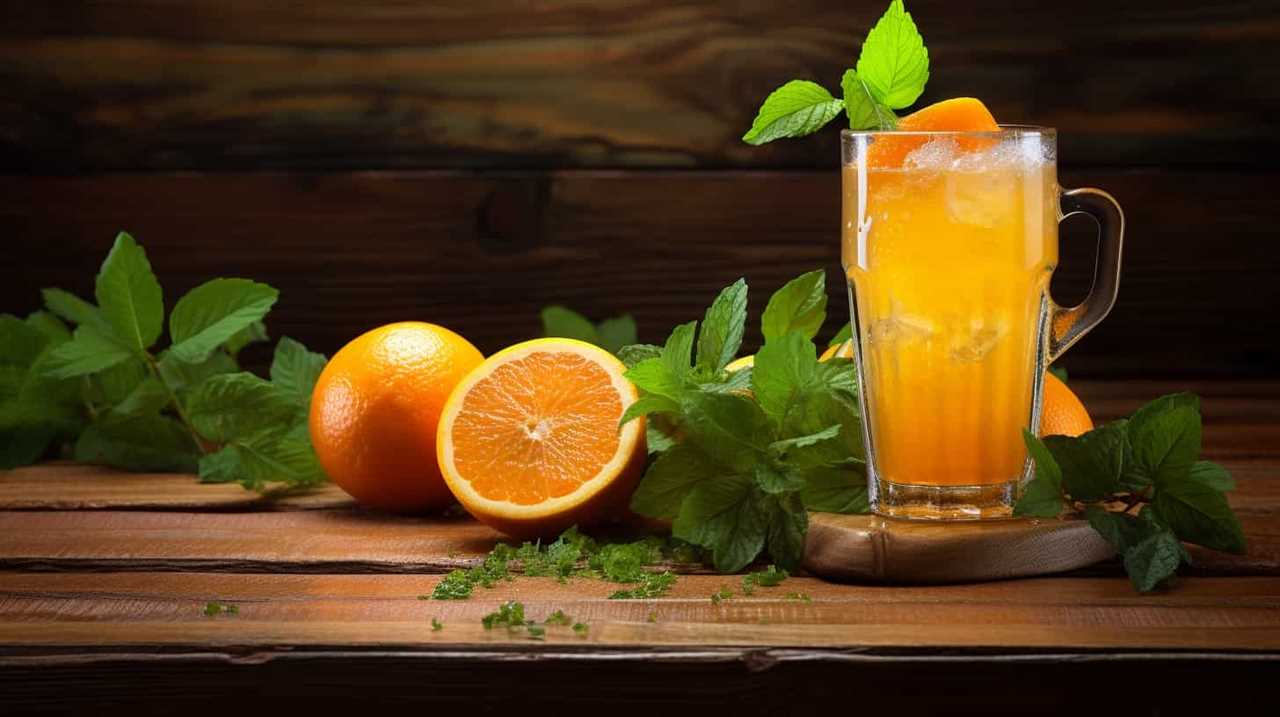
Frequently Asked Questions
Can I Use Store-Bought Aloe Vera Gel Instead of Fresh Aloe Vera for Making Juice?
Yes, you can use store-bought aloe vera gel instead of fresh aloe vera for making juice. However, it’s important to note that fresh aloe vera juice may have more health benefits due to its higher nutrient content.
How Long Can I Store Aloe Vera Juice in the Refrigerator?
Aloe vera juice can be stored in the refrigerator for up to a week. Refrigeration helps maintain the longevity and freshness of the juice, preserving its beneficial properties.
Can Aloe Vera Juice Help With Digestive Issues?
Aloe vera juice can potentially help with digestive issues when taken in appropriate dosages. However, it is important to note that there may be potential side effects. It is always best to consult with a healthcare professional before starting any new supplement regimen.
Can I Use Artificial Sweeteners Instead of Natural Sweeteners in My Aloe Vera Juice?
Using artificial sweeteners in aloe vera juice may affect its taste and potential health benefits. However, natural sweeteners like honey or stevia can enhance the flavor without compromising its nutritional value.

Is It Safe to Drink Aloe Vera Juice Every Day?
Drinking aloe vera juice daily can have numerous benefits, such as improving digestion and boosting the immune system. However, consuming it regularly may also lead to potential side effects like diarrhea or stomach cramps.
Conclusion
In conclusion, making aloe vera juice taste better is easy and enjoyable.
By choosing the right aloe vera juice and adding natural sweeteners, infusing with fruits and herbs, blending with other juices, and experimenting with flavor combinations, you can create a delightful and refreshing drink.
So go ahead and unleash your creativity in the kitchen, and transform your aloe vera juice into a sensational elixir that will transport your taste buds to paradise.
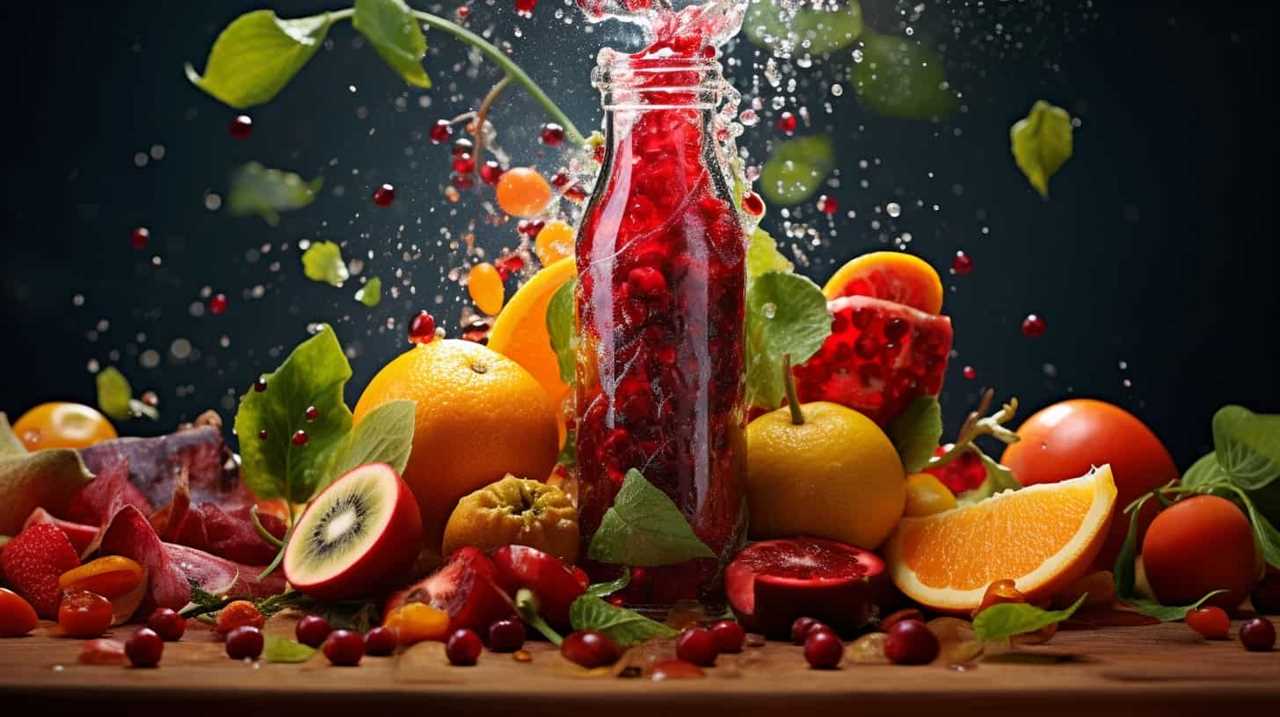
Susannah expertise lies in researching and compiling evidence-based content on juicing, nutrition, and overall health. She is committed to ensuring that The Juicery World offers accurate, up-to-date, and trustworthy information to empower readers to take control of their health. Susannah’s goal is to inspire individuals to embrace juicing as a way to nourish their bodies and live their best lives.
Juice Tips and Tricks
How to Make a Glass of Lemonade With Bottled Lemon Juice
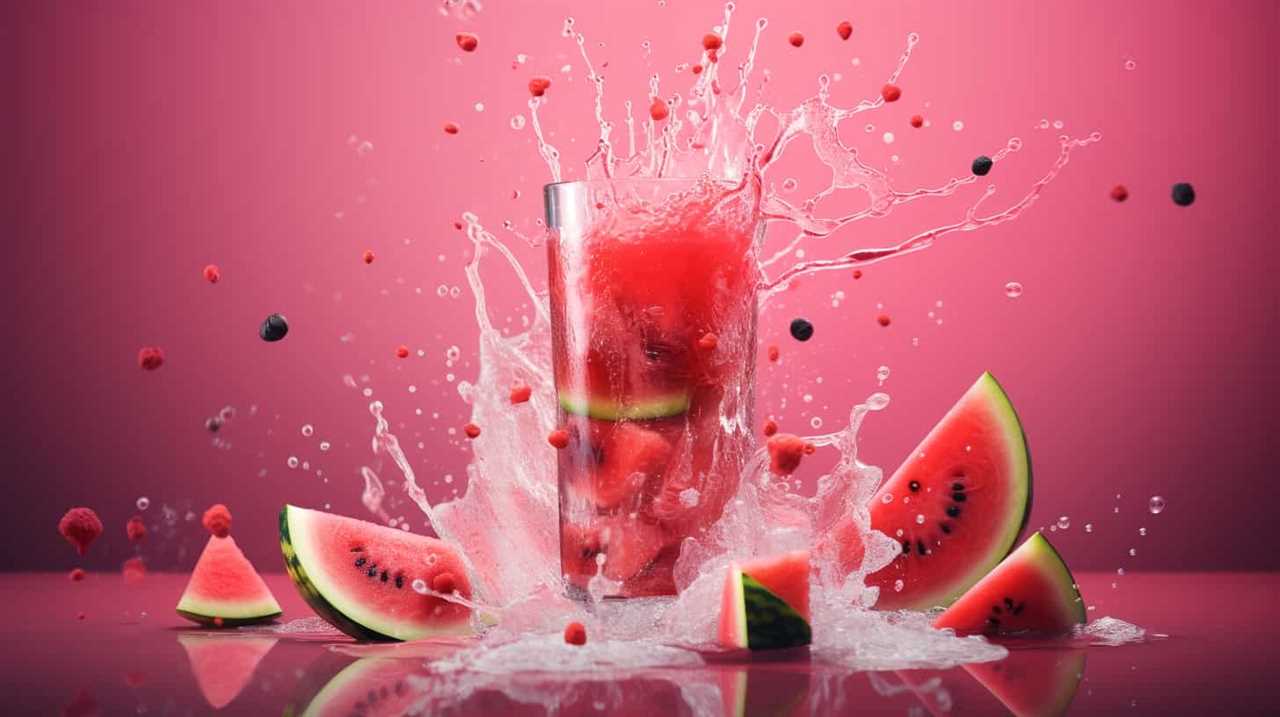
Are you craving a cool glass of lemonade to quench your thirst? Look no further! Try out our perfect recipe using bottled lemon juice that will surely please your taste buds.
In this article, we’ll guide you through the process of creating a tangy and sweet concoction that will leave you feeling refreshed and satisfied.
So grab your ingredients and let’s get started on this delightful journey of serving ourselves and others a glass of pure lemony goodness.
Key Takeaways
- Consider the storage of the bottled lemon juice (dark glass or plastic bottles, protect from light exposure, check expiration date)
- Choose a suitable pitcher and fresh lemons for enhanced flavor
- Store the lemonade concentrate in the refrigerator to maintain freshness
- Adjust the sweetness and tartness to taste with sugar or more lemon juice, and experiment with different sweeteners or additional flavors.
Choosing the Right Bottled Lemon Juice
What are the key factors we should consider when selecting the right bottled lemon juice for our lemonade?

One important factor is how the lemon juice is stored. Look for bottles that are made of dark glass or plastic, as they help protect the juice from light exposure, which can degrade its quality. It’s also important to check the expiration date to ensure freshness.
Another benefit of using bottled lemon juice is convenience. It saves time and effort compared to squeezing fresh lemons. Additionally, bottled lemon juice provides consistent flavor, as the acidity levels are standardized.
When selecting a brand, consider reading reviews and checking for certifications, such as organic or non-GMO.
Gathering the Necessary Ingredients and Tools
How can we gather all the necessary ingredients and tools to make a glass of lemonade with bottled lemon juice?
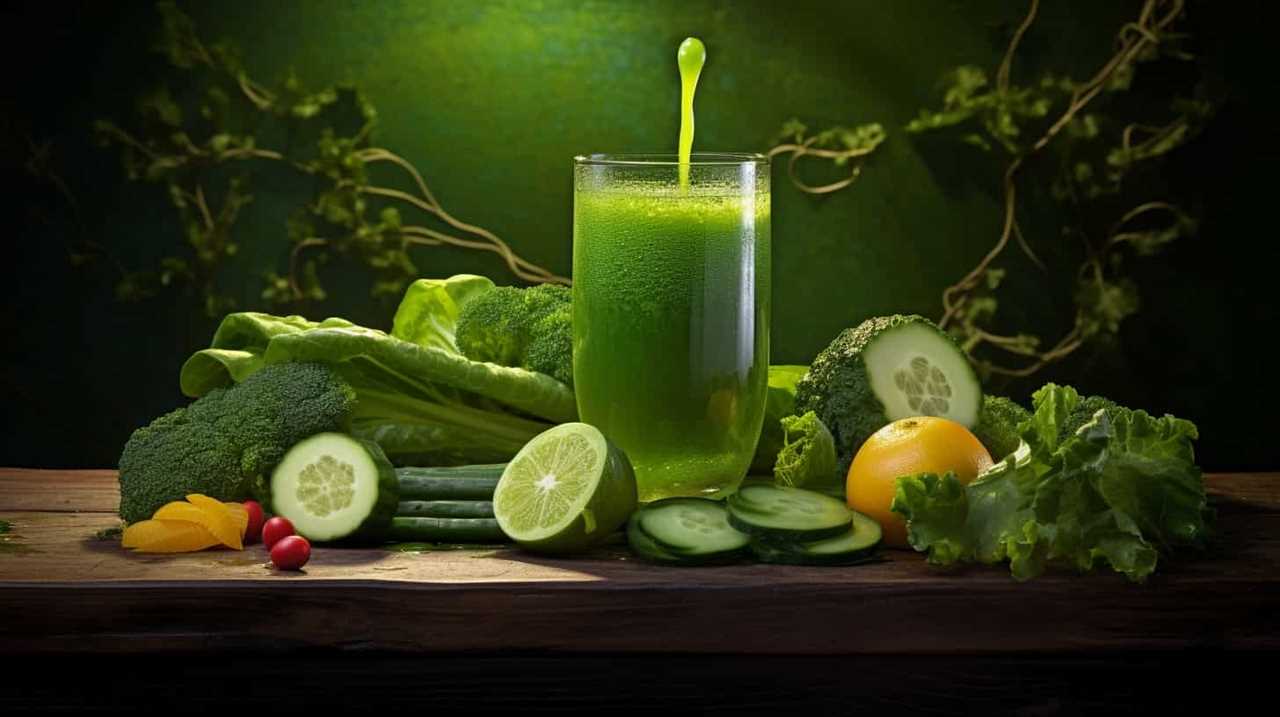
It’s important to start with the right pitcher. Look for a pitcher that’s made of glass or BPA-free plastic, as these materials won’t affect the taste of the lemonade. The pitcher should also have a lid or cover to keep the lemonade fresh and prevent spills.
Now, let’s talk about the lemons. While bottled lemon juice is convenient, using fresh lemons instead can elevate the flavor of your lemonade. Choose lemons that are firm and have a bright yellow color. Give them a gentle squeeze to ensure they’re juicy. To extract the juice, you’ll need a citrus juicer or a reamer. These tools make it easy to get every last drop of juice from the lemons.
Mixing the Lemonade Concentrate
To start mixing the lemonade concentrate, we’ll slowly pour the bottled lemon juice into the pitcher. It’s important to choose the right container for the lemonade concentrate. A pitcher with a lid or a tightly sealed container will help maintain the freshness and prevent any spills or leaks. Once the lemon juice is in the pitcher, we can move on to the next step of adding water and sweetener.
To ensure the lemonade concentrate stays fresh, it’s essential to store it properly. Keep the pitcher in the refrigerator to maintain its cool temperature and prevent any bacteria growth. If you have any leftover concentrate, transfer it to a smaller container with an airtight lid before refrigerating. This will help retain its flavor and prevent any contamination.
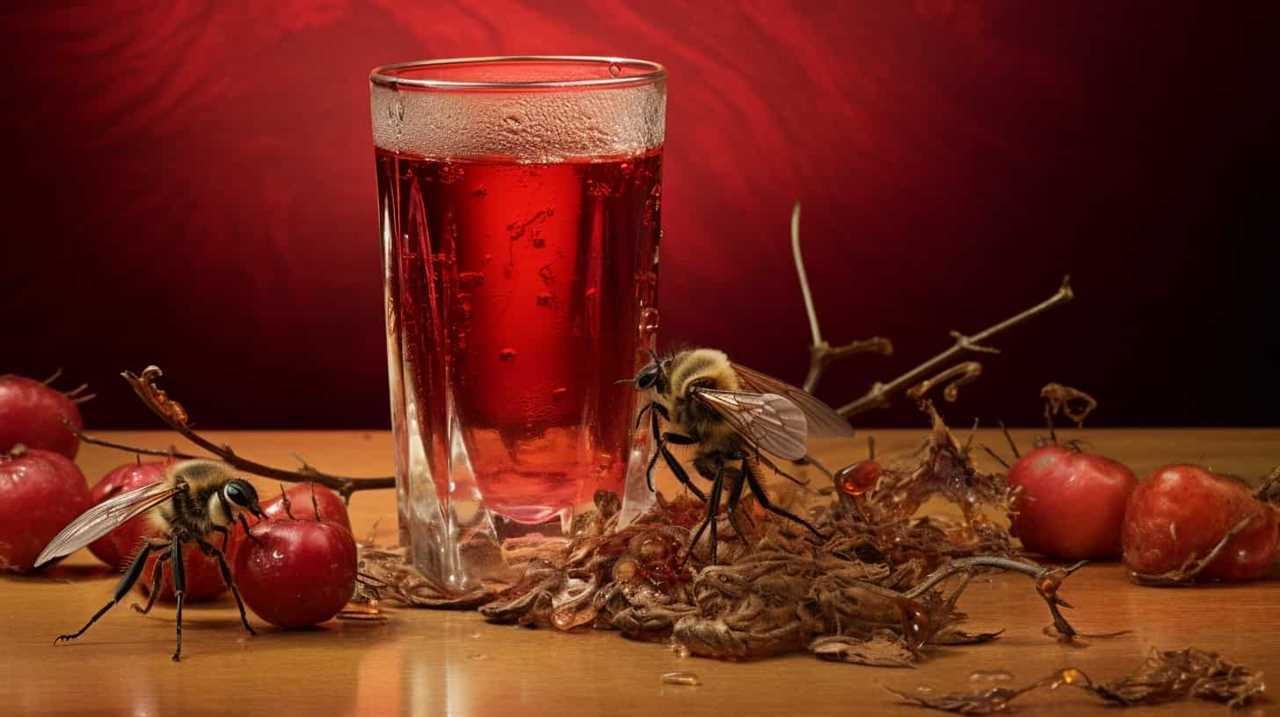
Now that we’ve mixed the lemonade concentrate, it’s time to adjust the sweetness and tartness to taste.
Adjusting the Sweetness and Tartness to Taste
We can adjust the sweetness and tartness of the lemonade to taste by adding more sugar or lemon juice, respectively. If you prefer a sweeter lemonade, simply add more sugar and stir until it dissolves completely. You can experiment with different sweeteners such as honey or agave syrup to find the perfect balance of sweetness.
On the other hand, if you want a tangier lemonade, add more lemon juice gradually, tasting as you go until it reaches your desired level of tartness.
Additionally, you can get creative with your lemonade by adding flavors like fresh mint leaves or a hint of lavender. These additions can elevate the flavor profile and create a more refreshing and unique experience.

Now that we’ve adjusted the sweetness and tartness of our lemonade, let’s move on to serving and enjoying your refreshing glass of lemonade.
Serving and Enjoying Your Refreshing Glass of Lemonade
Now let’s sit back, relax, and savor our refreshing glass of lemonade.
When it comes to serving and enjoying this delightful drink, there are a few techniques and garnishing options to consider.
Firstly, serving your lemonade chilled is essential for maximum enjoyment. Ensure that you have chilled glasses or add ice cubes to the glasses before pouring the lemonade.

To add a touch of elegance, you can garnish your lemonade with a slice of lemon on the rim of the glass. For an extra burst of flavor, you could also add a sprig of fresh mint or a few berries.
Remember to gently stir the lemonade before serving to evenly distribute the flavors.
Now, take a sip, feel the refreshing tang of lemon, and let the sweet and tart flavors dance on your taste buds.
Cheers!
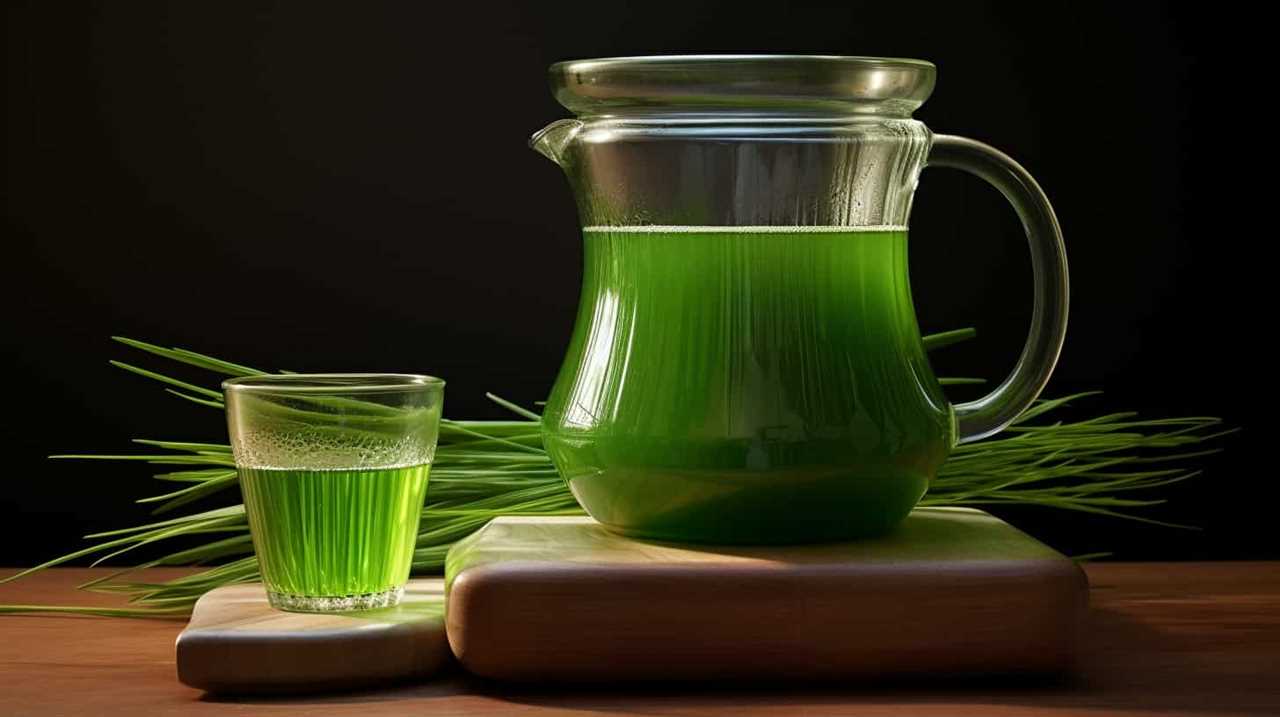
Frequently Asked Questions
Can I Use Fresh Lemons Instead of Bottled Lemon Juice?
Fresh lemons offer numerous benefits over bottled lemon juice. The taste of fresh lemons is unparalleled, providing a vibrant and tangy flavor. Incorporating fresh lemons into your lemonade will elevate its taste and give it a refreshing and authentic twist.
Can I Substitute Sugar With a Different Sweetener?
Substituting sweeteners in lemonade can enhance the flavor and offer health benefits. We’re knowledgeable about alternative sweeteners and can provide precise, detailed instructions on using them in place of sugar.
How Long Does the Lemonade Concentrate Need to Chill in the Refrigerator?
The chilling time for the lemonade concentrate in the refrigerator is typically around 1-2 hours. Using bottled lemon juice offers the benefit of convenience and consistent flavor for a refreshing glass of lemonade.
Can I Add Other Fruits or Flavors to the Lemonade?
Sure, we can definitely add different fruits or flavors to our lemonade. It’s a great way to experiment with unique flavors and create refreshing, personalized drinks. The possibilities are endless!

How Long Does the Lemonade Stay Fresh in the Refrigerator?
Lemonade made with bottled lemon juice can stay fresh in the refrigerator for about 5-7 days. To maximize shelf life, store it in an airtight container and keep it chilled.
Conclusion
And so, with a few simple steps and the right ingredients, a glass of refreshing lemonade is born.
Like a symphony of flavors dancing on your taste buds, this tangy elixir quenches thirst and brings joy on a hot summer day.
Just a sip transports you to a world of citrusy delight, where the sweetness and tartness blend harmoniously.

So go ahead, indulge in the art of lemonade-making and savor every drop of this sun-kissed nectar.
Cheers to the perfect glass of lemonade!
Susannah expertise lies in researching and compiling evidence-based content on juicing, nutrition, and overall health. She is committed to ensuring that The Juicery World offers accurate, up-to-date, and trustworthy information to empower readers to take control of their health. Susannah’s goal is to inspire individuals to embrace juicing as a way to nourish their bodies and live their best lives.
Juice Tips and Tricks
How to Know if Orange Juice Is Bad

We’ve all been in that situation before – reaching for a glass of orange juice and hesitating, unsure if it’s still okay to drink. Fear not! This article will give you the knowledge you need to determine for sure if your orange juice is still fresh or if it’s gone bad.
With a blend of scientific precision and practical tips, we’ll explore color changes, strange smells, off taste, texture changes, and mold or growth that may indicate spoilage.
Let’s dive in and serve ourselves a refreshing glass of certainty!
Key Takeaways
- Color changes in orange juice can indicate a loss of freshness and shelf life extension, but it doesn’t necessarily mean the juice is bad.
- Unusual or off-putting odors in orange juice, such as sour or fermented scents, can be a sign of poor quality.
- An off taste in orange juice, such as sour, bitter, or fermented flavors, suggests that the juice is spoiled.
- Texture changes in orange juice, such as pulp separation or a thicker consistency, can occur as the juice ages, so it’s important to consume it before the expiration date.
Color Changes in Orange Juice
We should be aware that color changes can indicate whether orange juice is bad.
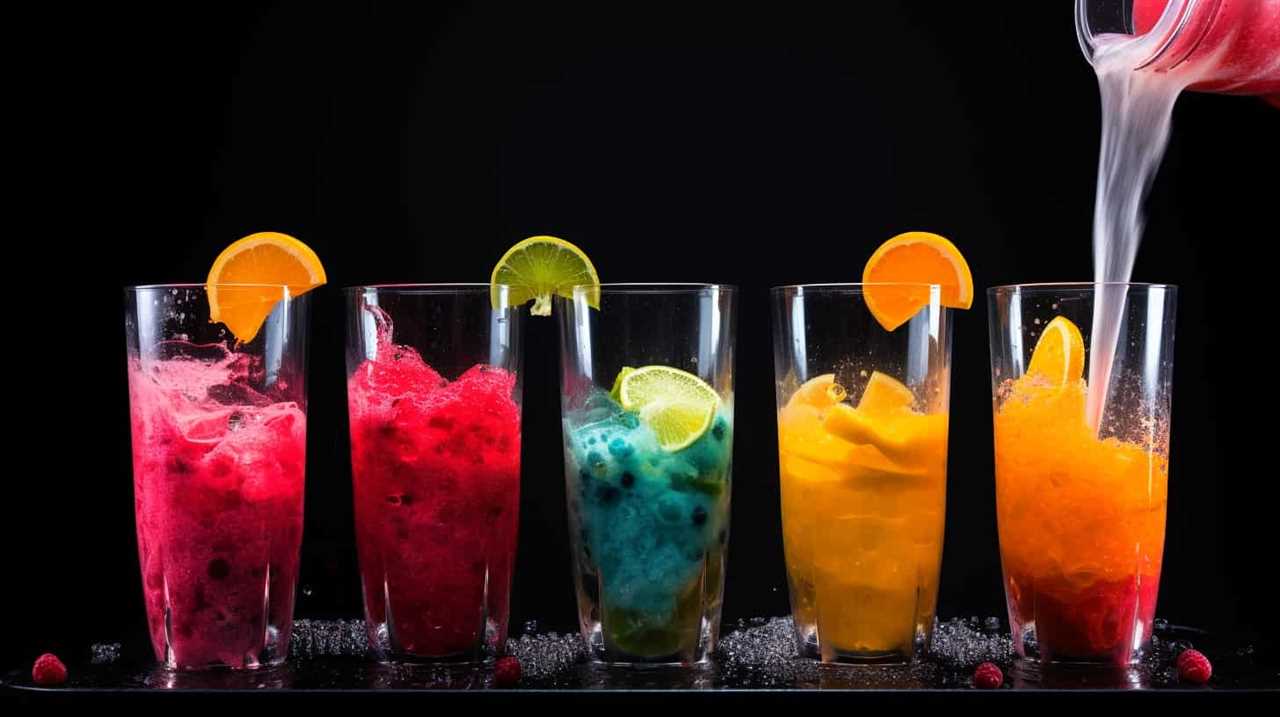
When it comes to orange juice, color is a crucial factor to consider. As oranges are exposed to air, an oxidation process occurs, which leads to changes in color. Fresh orange juice has a vibrant orange hue, indicating its freshness and high nutritional value.
However, as time passes, the juice may undergo a color change, turning dull or brownish. This change in color is a result of the oxidation process, which affects the flavor and quality of the juice. It’s important to note that while a change in color doesn’t necessarily mean the juice is bad, it does indicate that the juice is losing its freshness and shelf life extension.
Therefore, it’s advisable to consume orange juice when it’s at its freshest, as indicated by its vibrant orange color.
Strange Smells in Orange Juice
When it comes to evaluating orange juice, we should be cautious of any strange smells or odors. A fresh, pleasant smell is indicative of good quality orange juice. However, if you notice any unusual or off-putting odors, it may be a sign that the juice has gone bad. These smells can range from a sour or fermented scent to a rancid or moldy aroma.
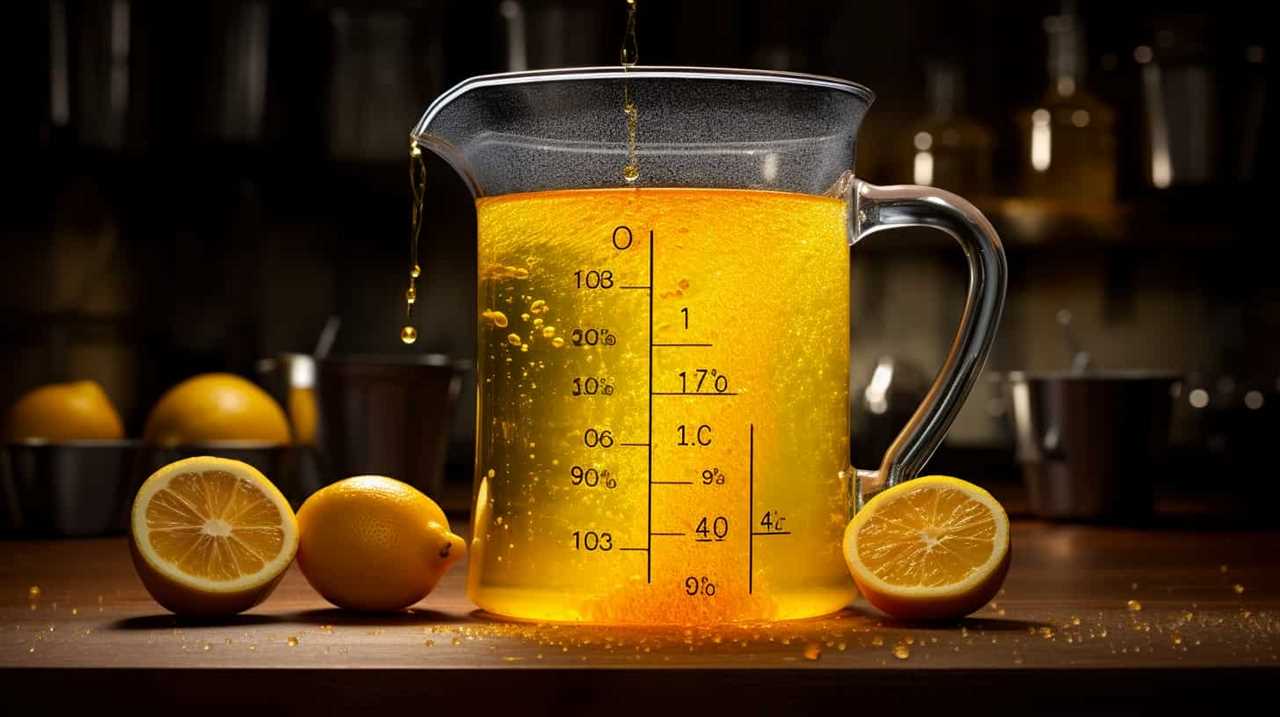
It’s important to note that while some natural variations in scent can occur due to the specific variety of oranges used, any strong or unpleasant smells should raise concerns. If you have citrus fruit allergies, it’s especially important to pay attention to the smell of orange juice, as it could indicate the presence of spoilage or contamination.
Ensuring the quality of orange juice is essential as it’s a popular beverage known for its health benefits, including being rich in vitamin C and antioxidants.
Off Taste of Orange Juice
Our taste buds can detect even the slightest hint of an off taste in orange juice, which can indicate that it has gone bad. The taste of orange juice should be fresh, tangy, and slightly sweet. If it tastes sour, bitter, or fermented, it’s likely spoiled.
One common cause of an off taste in orange juice is the use of overripe oranges. When oranges become overripe, their flavor profile changes, resulting in a less pleasant taste. Another factor to consider is the expiration date. Orange juice that has passed its expiration date is more likely to develop an off taste. It’s important to check the expiration date before consuming orange juice to ensure its freshness and quality.
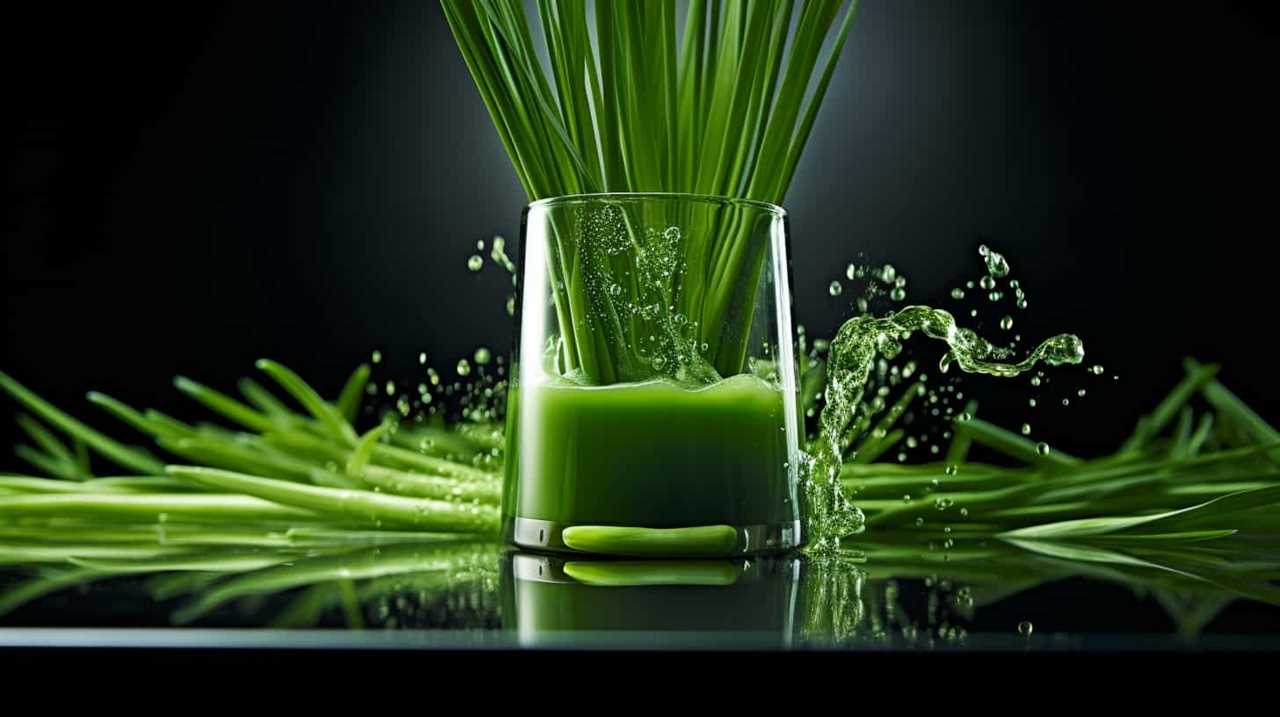
Now, let’s move on to discuss the texture changes in orange juice.
Texture Changes in Orange Juice
As we explore the texture changes in orange juice, it’s important to note that certain factors can cause it to become thicker or develop sediment. One common texture change in orange juice is pulp separation, where the pulp separates from the liquid and settles at the bottom. This can occur naturally over time, as the pulp particles become denser and sink.
Another factor that can affect the texture of orange juice is the expiration date. As orange juice ages, it may start to develop a thicker consistency and even form sediment. This is a result of the natural breakdown of the juice’s components. Therefore, it’s crucial to check the expiration date on orange juice and consume it before it reaches its expiration date to avoid any undesirable texture changes.
Mold or Growth in Orange Juice
We need to be aware of the possibility of mold or other growth occurring in orange juice. Mold can develop in orange juice if it isn’t stored properly or if it has passed its expiration date.
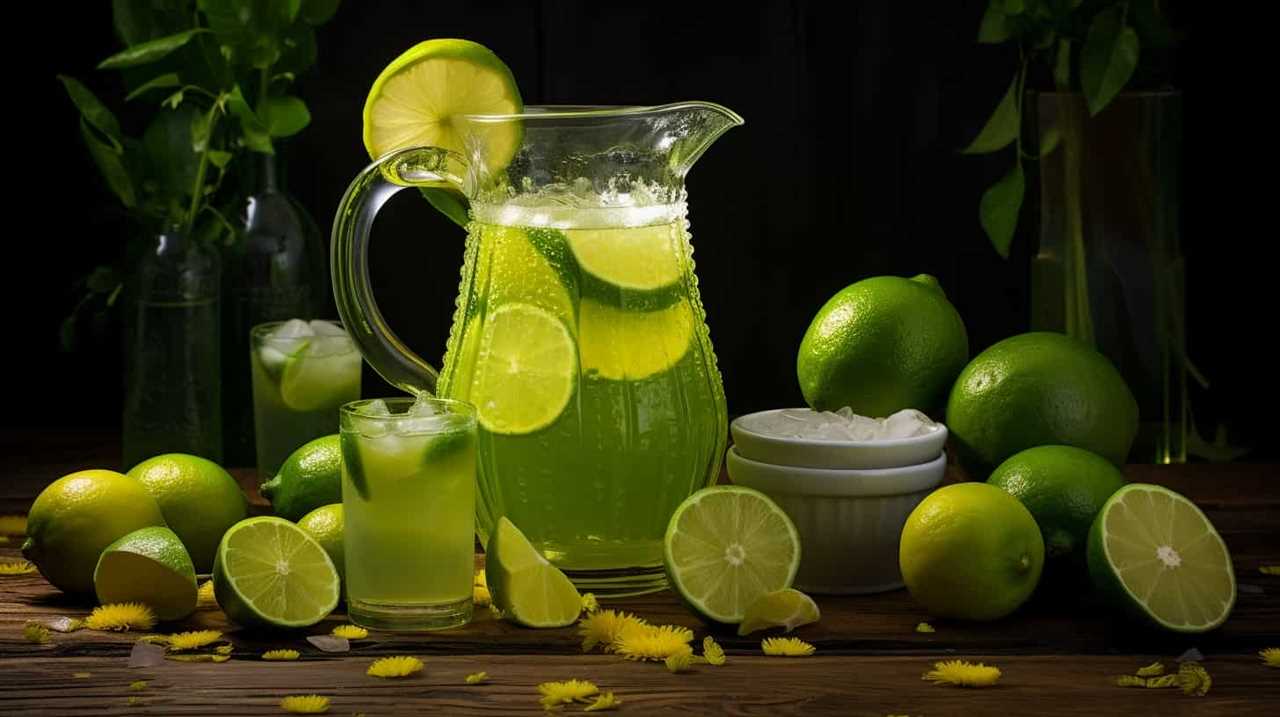
To prevent mold growth, it’s important to follow these steps:
- Store orange juice in the refrigerator at a temperature below 40°F (4°C).
- Check the expiration date on the bottle before consuming. Discard any orange juice that has expired.
- Keep the container tightly sealed to prevent air and moisture from entering, as these can promote mold growth.
Regularly inspecting orange juice for any signs of mold or unusual growth is essential. If you notice any discoloration, a strange odor, or visible mold, it’s best to discard the juice to avoid any potential health risks.
Frequently Asked Questions
Can Orange Juice Go Bad if It’s Stored in the Freezer for Too Long?
Frozen orange juice can potentially lose its nutrients and change its taste if stored in the freezer for too long. It is important to check for signs of spoilage before consuming it.
How Long Can Orange Juice Stay Fresh in the Refrigerator Once It’s Opened?
Once opened, orange juice can stay fresh in the refrigerator for about 7-10 days. To maintain its freshness, store it properly by keeping it tightly sealed and at a consistently cold temperature.
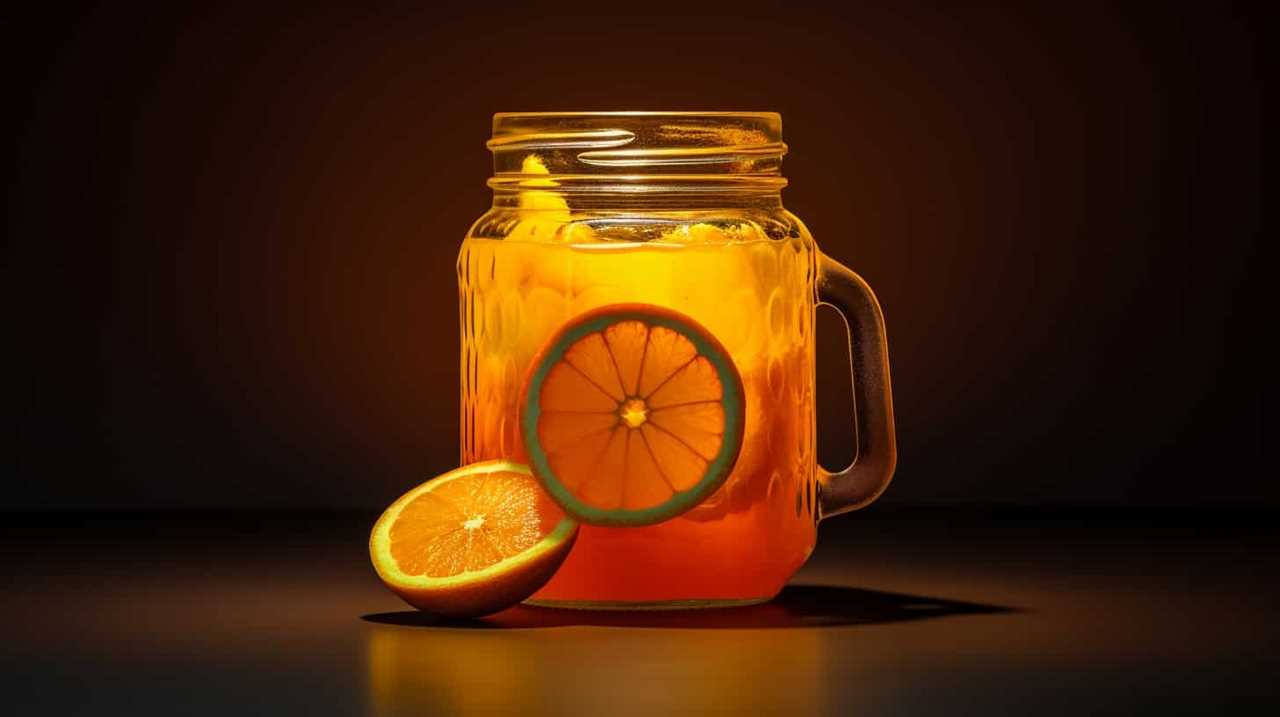
Is It Safe to Consume Orange Juice That Has Been Left Out at Room Temperature Overnight?
Left out orange juice may not be safe to drink as it can harbor harmful bacteria. Signs of spoiled orange juice include a sour smell, mold growth, and a change in color or taste.
Can Orange Juice Develop Harmful Bacteria if It’s Past Its Expiration Date but Still Looks and Smells Fine?
Orange juice can cause food poisoning if it develops harmful bacteria, even if it looks and smells fine. Signs of spoiled orange juice include a sour smell, mold growth, and a change in color or taste.
Does the Nutritional Value of Orange Juice Decrease as It Starts to Go Bad?
As orange juice goes bad, its nutritional value decreases. The longer it sits on the shelf, the more nutrients it loses. Signs of spoilage include a sour smell, off taste, and mold growth.
Conclusion
In conclusion, determining if orange juice is bad requires careful observation of color changes, strange smells, off taste, and texture changes. Just like a detective investigating a case, we must rely on our senses to detect any signs of spoilage.
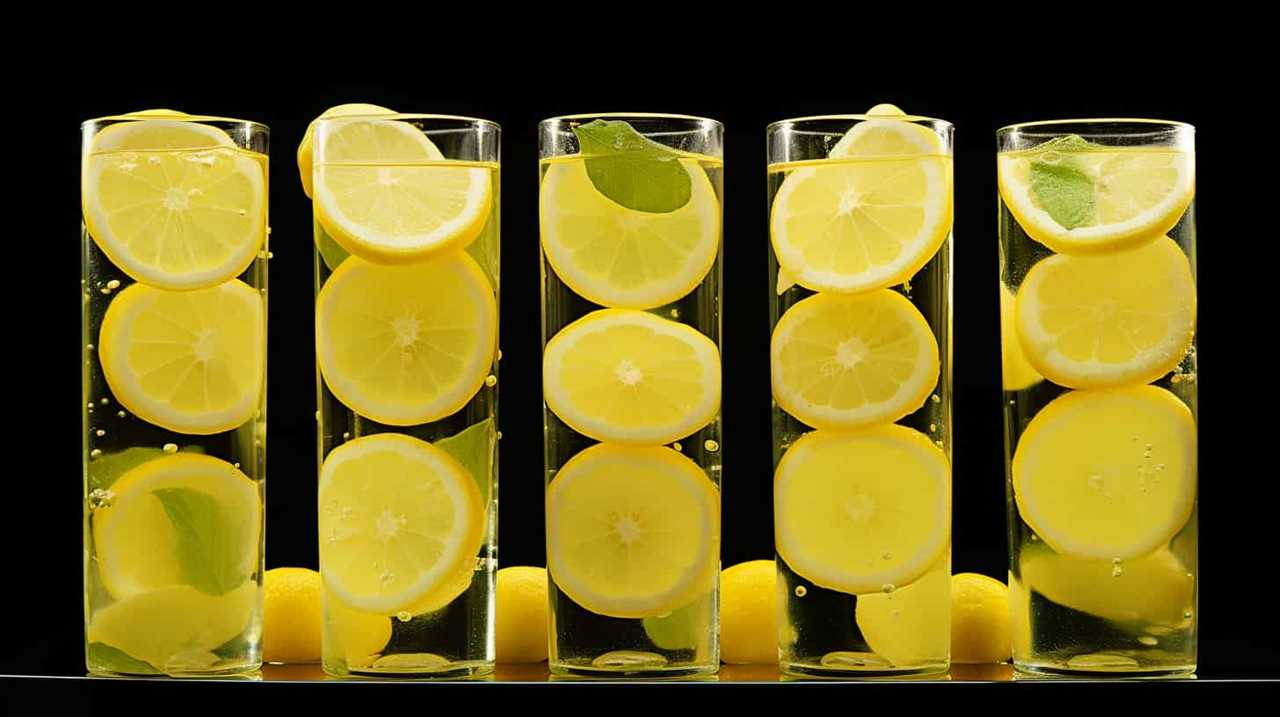
If we detect mold or growth in the orange juice, it’s a clear indication that it’s no longer safe to consume. By remaining vigilant and attuned to these indicators, we can ensure that our orange juice is always fresh and enjoyable.
Susannah expertise lies in researching and compiling evidence-based content on juicing, nutrition, and overall health. She is committed to ensuring that The Juicery World offers accurate, up-to-date, and trustworthy information to empower readers to take control of their health. Susannah’s goal is to inspire individuals to embrace juicing as a way to nourish their bodies and live their best lives.
-

 Juice Tips and Tricks3 months ago
Juice Tips and Tricks3 months agoHow To Make Homemade Pickle Juice
-

 Juice Tips and Tricks3 months ago
Juice Tips and Tricks3 months agoHow Much Lemon Juice Is Equal To Half A Lemon
-

 Juice Tips and Tricks3 months ago
Juice Tips and Tricks3 months agoHow Much Lemon Juice Concentrate Equals One Lemon
-

 Juice Tips and Tricks2 months ago
Juice Tips and Tricks2 months agoHow Long Can You Drink Orange Juice After The Expiration Date
-

 Fruit Juice Varieties2 months ago
Fruit Juice Varieties2 months agoTop 11 Most Loved Fruit Juice Varieties
-

 Juice Tips and Tricks3 months ago
Juice Tips and Tricks3 months agoHow Much Lemon Juice Is Equivalent To 1 Lemon
-

 Juice Tips and Tricks3 months ago
Juice Tips and Tricks3 months agoHow Much Lemon Juice Is Equivalent To One Lemon
-

 Organic and Natural Juices2 months ago
Organic and Natural Juices2 months ago8 Best Organic Brands for Fruit Juice




